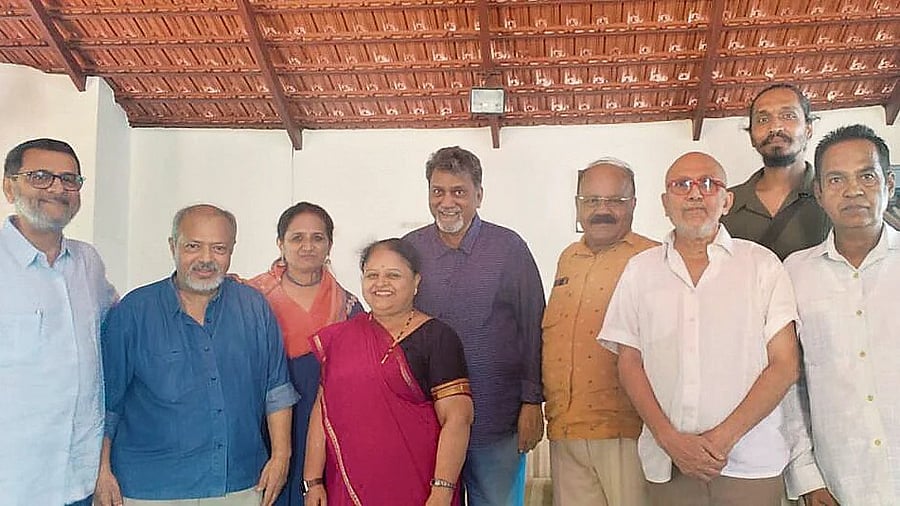
Credit: Special Arrangement
Bengaluru’s Bahuvachana Trust has launched an initiative to translate Indian language works into English and make them accessible worldwide. It will comprise a literary journal, a publishing house, and a digital platform. It aims to create a sustainable ecosystem for translation.
The initiative is called Hyphen. Currently, the website is live, but the three verticals are slated to launch in the first half of 2026.
The name is inspired by poet-scholar A K Ramanujan, who described himself “as a hyphen between India and the US”, says Bengaluru-based writer Vivek Shanbhag, who is closely associated with the project. “A hyphen connects different things. Translation, in essence, does the same — it bridges cultures, languages, and ways of looking at the world,” he explains.
Designed as a collaborative platform, Hyphen will bring together writers and translators across borders.
Three verticals
The first vertical is a literary journal in English, called ‘Hyphen: Connecting Literatures’. It will be available in print and digital formats. It will feature curated translations from across India, highlighting the depth and diversity of Indian language writing. “Each issue will be a curated anthology representing multiple writers,” says Shanbhag.
Hyphen Publications, the second vertical, will be dedicated to translating landmark Indian language works into English, produced to international standards. Shanbhag emphasises that translation “requires time, deep cultural understanding, and strong editorial support — resources often missing in general publishing houses”. Translation is their singular focus, he adds.
The third vertical, Hyphen Digital Platform, will provide access to digital books and magazines. “Digital accessibility is crucial today,” Shanbhag explains.
Additionally, Hyphen intends to host translation workshops, literary seminars, fellowship programmes, and other cultural events.
Regional writers need their due
Shanbhag’s commitment to translation is deeply personal. “As a reader, I want to explore what is being written in Malayalam, Tamil, Odia, Assamese, and beyond,” he explains.
M S Sriram, founding trustee of the Bahuvachana Trust, a writer, and professor at IIM Bangalore, says the aim of Hyphen is to place Indian literature on the global map. “Translations are happening, but they remain largely confined to the Indian market. Indian English writers have broken through internationally, but regional language writers haven’t,” he says.
He believes editorial rigour and quality are key to good translation. “We want translations that we can be proud of — work that appeals to international readers,” he adds.
Hyphen will be guided by an advisory council of eminent writers and literary figures from India and abroad, including Geetanjali Shree, Perumal Murugan, Namita Gokhale, K R Meera, Christopher Merrill, and Hansda Sowvendra Shekhar, as well as Sudhir Sitapati, CEO and managing director of a leading FMCG company.
Shanbhag says Hyphen is a long-term cultural project, and any collaboration that furthers translation is welcome. The initiative is looking for editors, translators, writers, designers, and digital marketing professionals.
For details, visit the-hyphen.in
‘Follow Japan and Korea’s model’
Kannada author Vasudhendra advocates for such initiatives, noting that Indian literature is often seen only through the lens of English writing. “Few realise that our regional literatures are vast, diverse, and often superior in content,” he said. He said that Japan and Korea succeeded by building international publishing networks and promoting translations, and India must do the same.
Kannada writer Nataraj Huliyar, who taught translation studies at Bangalore University for nearly two decades, says platforms that identify and train translators are essential. “However, decisions on what to translate and who translates what need a systematic approach,” he added.Poet Prathibha Nandakumar says awards and fellowships for translations have grown recently, and Hyphen will add to the momentum. “A good book going into other languages is always welcome (sic),” she said.